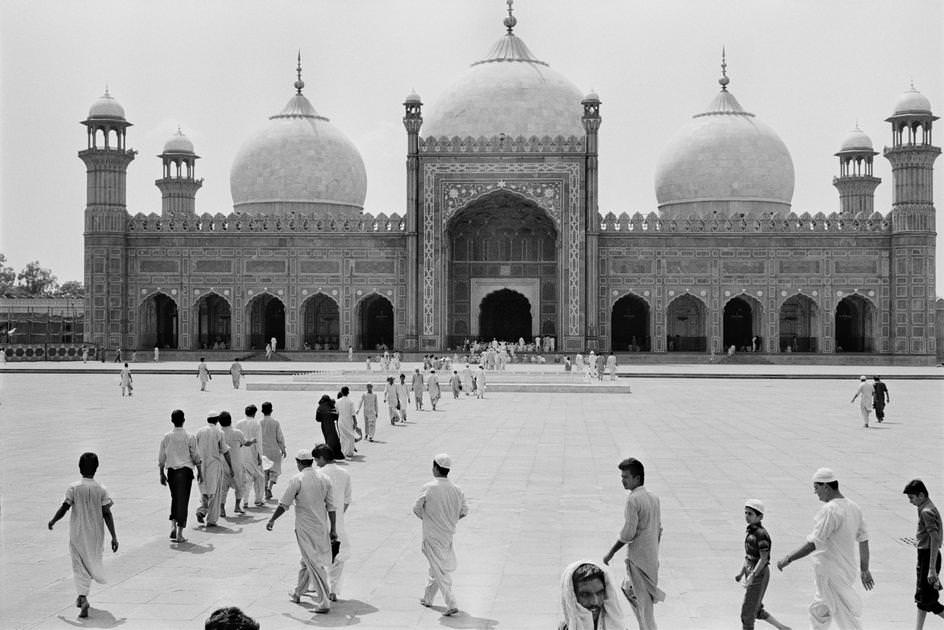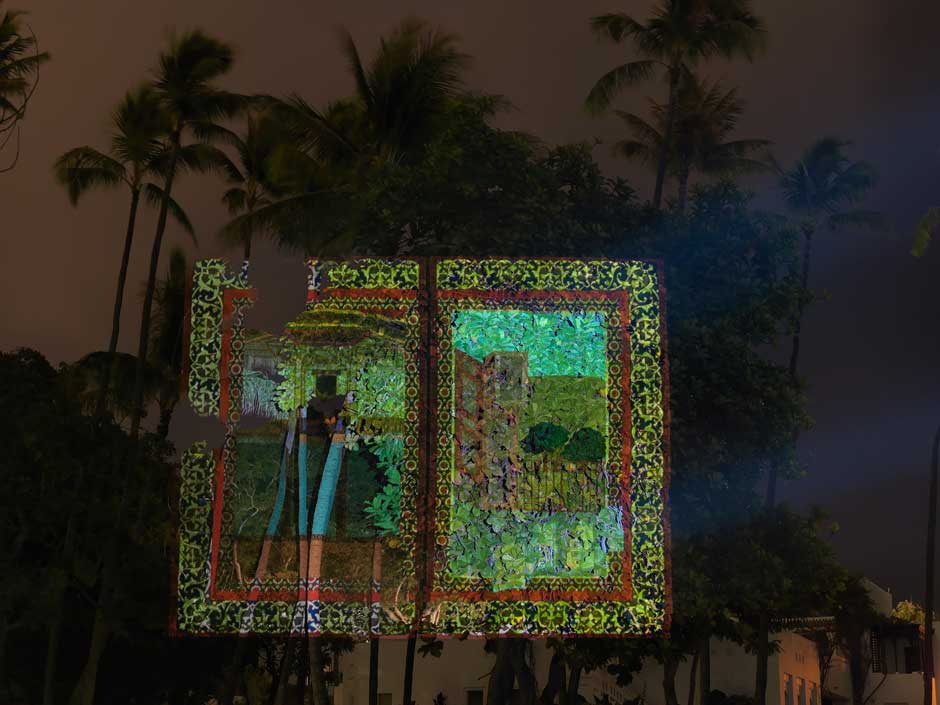Rarely has an event framed around books and ideas felt so urgent. A few weekends ago, a group of writers, artists, and editors gathered in Lahore, the capital of Pakistan’s Punjab heartland, to defend the written word. People turned up from every part of the country to hear them—Karachi and Islamabad, but also Balochistan and the remote tribal regions along the Afghan frontier. Sometimes filling the aisles and stairways of the three venues where the gathering was held, they listened to debates on everything from the future of the novel to the future of Pakistan.
In an age in which international literary festivals have become commonplace, there is very little ordinary about the Lahore LitFest, starting with the location. “PK! What are you doing there?” a US immigration official wondered, when I set out from New York. My barber asked me if I had a bullet-proof vest. Even in the Middle East, in places that have plenty of tension of their own, a Pakistani destination seems to raise red flags. “It would be a shame if you got yourself kidnapped,” an Arab journalist who covers political unrest told me, during a visit to the Arabian Peninsula two days before my journey on to Lahore.
To anyone who has actually been there, such reactions may seem grossly unfair. With a sizable liberal elite, a strong tradition in publishing and the arts, and an old city filled with extraordinary Mughal architecture, Lahore arguably has more in common with the leading cities of India and Europe than with the dark image of Pakistan shown almost daily in the news. The city’s best-known institutions of learning are not jihadist-grooming madrasas but humanistic and secular; consider the National College of Arts, the country’s premier art and design school, which began under British rule in the nineteenth century, with Rudyard Kipling’s father as its first principal.
Yet Lahore, too, is under siege. After more than a dozen years of the US-led “war on terror,” as Pakistan has slid between military and civilian rule, crackdowns and suicide bombings, sectarian war and tribal insurgencies, this metropolis of some ten million people has struggled to maintain its old values. Following a series of terrorist attacks in 2009 and 2010, many Western-educated Lahoris left; more recently, security threats have forced international diplomats, including the US Consul General, to abandon the city for fortified compounds in Islamabad. Checkpoints have become common, blackouts are frequent.
And so it was that a group of Lahori intellectuals decided to fight back in the way they best know how: with words and books and open debate. Led by Razi Ahmed, a University of Chicago-educated Lahore native whose father is chairman and publisher of Newsweek Pakistan, they set out to create the LahoreLitFest, an annual event that would show the country in a different light. They made use of the city’s Alhamra Art Center complex—a series of elegant buildings by local architect Nayyar Ali Dada that might be described as Mughal modernism—and last winter, their fledgling start drew interest across Pakistan. This year’s program, now with multiple sponsors, was extended to three days and writers were invited from nearly a dozen countries, among them India, Britain, Egypt, and the United States.
One of the more fascinating aspects of the erosion of Pakistani stability—and of the country’s self-image in the world—is how fruitful it has been for recent fiction. Among the speakers in Lahore, for example, was Mohammed Hanif, who began as a journalist investigating the 1988 assassination of Pakistani dictator General Zia-ul-Haq, the leader whose policies of “Islamisation” turned the country away from secularism and, many argue, laid the ground for the growing oppression of religious minorities in more recent years. Somewhat stymied in the pursuit of fact, Hanif turned his research into his comic first novel, A Case for Exploding Mangoes. (Hanif has described the work as “a failed journalist’s revenge.”) His new novel, Our Lady of Alice Bhatti, is meanwhile set in a Catholic hospital in Karachi, a city pregnant with sectarian tension. And then there is Lahore native Mohsin Hamid, whose novel The Reluctant Fundamentalist offers as insightful view of US-Pakistani relations in the age of terrorism as any work of nonfiction. Hamid, who spoke in Lahore with director Mira Nair about her film adaptation of the book, told me he met three women school teachers from Peshawar, the volatile administrative capital of Pakistan’s tribal areas, who had used their savings to travel three hundred miles by bus to the Litfest, for the second year in a row.
Peshawar, of course, is less known today for its literary set than its lawlessness and violence. Yet the British Pakistani writer Kamila Shamsie, whose fifth novel, A God in Every Stone, is an archaeological drama set in Peshawar’s fading years of British colonial rule, spoke about the city’s rich history and its entrancing, but widely ignored museum, filled with masterworks of Gandharan art. A great deal of Pakistan’s hidden cultural resources, it seems, are simply in need of excavation: the festival made special tribute to the US-based Lahori artist Shahzia Sikander, who has applied and reinvented the methods of traditional miniature painting to create large-scale video installations of extraordinary beauty.
Advertisement
One of the animating presences of the festival was Ahmed Rashid, a native Lahori and longtime New York Review contributor who has chronicled with relentless precision the destructive forces—often deep within the state—that have been tearing apart his country for the past two decades. Rashid held a fascinating talk with the Middle East expert and former Obama administration official Vali Nasr, whose stark diagnosis of sectarian conflict across much of the Muslim world seemed to put the Pakistani predicament in perspective: at this moment, one could reflect, such divisions were a cause for debate, not violence.
And then there was Ardeshir Cowesjee (1926–2012), the legendary Karachi columnist who might more accurately have been described as a one-man shadow government. A wealthy businessman from the Zoroastrian religious minority, Cowesjee fearlessly exposed the corruption and mismanagement of Pakistan’s political class in a weekly column that not infrequently brought him death threats. As Karachi descended into violence and gang warfare in recent years, he continuously attacked the dirty real estate dealings, incompetent governance, decaying municipal services, and rising intolerance that were driving it. During a lively debate about his legacy, the power went out, and the panelists kept talking until someone lit the stage with an iPhone.
As several Pakistani journalists observed, a gnawing challenge for the country today is that, amid growing currents of fundamentalism and extremism, few dissenting voices command the prominence in domestic debate that Citizen Cowesjee once did. (Cowesjee himself, in one of his last columns in 2011, confessed that he was “tired and disillusioned with a country that just cannot pull itself together.”) Even amid the relative calm of Lahore, there is a sense of losing ground. In The Bargain From the Bazaar: A Family’s Day of Reckoning in Lahore, a work of narrative non-fiction to be published in the US this spring, Haroon K. Ullah tells the story of a middle-class Lahori family from the early years of Pakistan to the present; it begins with the hopes of a patriotic father and culminates with a son who is drawn to Islamist terror.
Something of this foreboding was present during my own visit. The day before the Litfest began, the Pakistani government began a new offensive against the Taliban in the tribal areas, but many people I talked to felt it was too little too late. Others were concerned about blowback: as the Lahori writer Ali Sethi suggested to me, wouldn’t a gathering of international writers be a perfect target for extremists wanting to punish the Westernized liberal establishment?
On the final day of the festival, the atmosphere was charged. By afternoon security around the venue had been ramped up; the guy who had spent the weekend laboriously pulling espresso shots for festival guests from a tiny one-cup machine had run out of coffee. One of the most anticipated debates involved Pakistani and Indian diplomats and journalists talking about the two country’s relations. It was attended by nearly one thousand people, security men with rifles guarding the doors. There was frustration in the audience about the panelists’ entrenched positions, though at the same time apparent awe that a vigorous and frank conversation of this sort was taking place.
Just as preparations were being made for the closing event, the American Ambassador to Pakistan, Richard Olson, suddenly arrived, impromptu, from Islamabad. It would be an understatement to say the US government is not widely liked in Pakistan. For more than a decade intense US military engagement—from the Afpak war to the drone campaign—has coincided with the steady collapse of law and order in Pakistan, and it has become almost reflexive in the Pakistani media to lay whatever blame is to be had on the Americans. Steering clear of politics, the ambassador briefly addressed the audience about some US cultural projects in Pakistan, including the restoration of Wazir Khan Mosque in Lahore’s old city, a badly-deteriorated Mughal masterpiece.
Even so, the theme of the discussion was “War on Culture,” a worldwide drama in which many Pakistanis view the US as arch malefactor. (I took part in the panel, along with Ahmed Rashid, the novelist Vikram Seth, and the Indian heritage expert Naman Ahuja.) When a gentleman who identified himself as hailing from South Waziristan protested that the US could never rectify the cultural destruction it had caused in the Middle East, the house erupted in applause. Taking the microphone, the ambassador, now sitting in the front row, stood up to respond. The crowd went quiet. He conceded the mistakes made by the previous US administration; he said that he and the current administration were committed to doing more to defend Pakistan’s heritage. It brought some applause of its own. Thus ended the festival, with Waziristan and Washington coming to some kind of temporary truce.
Advertisement



